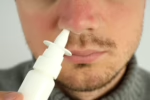Addiction & Recovery: The Facts

Addiction is a challenging topic for many people, not because they’re afraid to talk about it, but because they simply might not know how to talk about it. So many misconceptions, theories and myths surround the topic of addiction, so when a family member or a loved one is diagnosed with a substance use disorder, it can be incredibly alarming to their loved ones.
While addiction is a scary concept, understanding more about it can help reduce the unknown and mitigate those fears — additionally, taking the time to understand the facts about addiction can better equip you to assist your loved one who may be struggling.
Addiction and recovery facts
The more you understand addiction and the way it works on the body and brain, the less frightening it becomes, and the more proactive you can be in your loved one’s addiction recovery journey.
1. Addiction isn’t a choice
It may be fair to say that your loved one who is now struggling with addiction made the choice to initially use a substance. However, many people use alcohol or drugs throughout their life without becoming dependent or addicted. Addiction isn’t a choice, but the result of many biological, physiological, emotional and even social aspects that can make an individual particularly vulnerable to a variety of substances.
Addiction occurs over a period of time where slowly the brain is affected to the extent of becoming so rewired that it cannot properly function without substances – this whole process can occur whether the individual realizes it is happening or not, meaning the whole process of a brain and body becoming addicted is not one’s choice.
2. You cannot cure your loved one’s addiction
Watching a loved one battle addiction can leave you feeling guilty or helpless when you realize you are unable to cure their addiction. The truth is that addiction is a complicated disease that can’t be fixed with just love and support, no matter how badly we wish otherwise.
Enrolling in a treatment program and following a personalized treatment plan designed by addiction professionals who understand the individual’s unique needs is a necessary step in managing substance use. Having the support of friends and family while fulfilling the treatment plan can increase an individual’s chances of long-term success.
3. You cannot force a change of heart
Ultimately, an individual needs to desire a change for themselves — you cannot will them into recovery no matter how badly they’d like to. When it comes to behaviors motivated by addiction, healing and change only occur when you’re loved one wants to change themselves.
Of course, you can plan a vital role in this change by having open and honest conversations that may motivate the turning point in your life. But ultimately, they must desire recovery for themselves in order for it to be successful and long-lasting.
4. Treatment is successful, but success is not guaranteed
You may feel relieved once the person in your life suffering from addiction finally accepts treatment. It can be tempting to believe that once they finish the course of treatment, their addiction will be gone and life will return to normal. However, entering a treatment program doesn’t necessarily guarantee success or sobriety, although it’s a great first step on the road to recovery.
As an individual progresses through recovery, they will be faced with the choices they made and the reality of the negative impact addiction had on their life overall — this is not a bad thing, as coming to terms with these truths is crucial for healing, but it will be a hard thing. In order for treatment to be successful, it’s important to have strong personal goals designed to increase perseverance and motivation.
5. Relapse is normal
One of the most unfortunate truths of addiction is that relapsing, especially during the first few months post-treatment, is not uncommon. While disheartening, it’s important to remember that your loved one is working at redefining their lifestyle and rewiring their brain. This is not an easy task, and setbacks will happen.
While relapse is an undeniable fact of addiction recovery, it won’t happen to everyone; those it does happen to, however, should not view it as a massive failure. Rather, relapse is a setback in the process, an experience of growth and a learning lesson in the recovery journey. For this reason, don’t panic if your loved one experiences a relapse. Help them get the treatment they need and encourage their continued progress and perseverance.
6. Recovery is a lifelong journey
While treatment for addiction can significantly impact an individual’s life, once addiction treatment has been completed, it’s up to your loved one to continue implementing the tools they learned in treatment in their day-to-day life. Your loved one will always need to be choosing recovery in order for it to remain successful, but this is entirely possible with a supportive community of family and friends around them.
Want to learn more about addiction?
Addiction can take time to understand, especially because of the numerous myths surrounding the topic. Thankfully, there are numerous addiction treatment centers and sources for learning the facts about addiction and addiction recovery.
To speak with a mental health and addiction specialist today, consider reaching out to Silvermist Recovery. Contact us or (412) 561-9558 to learn more about addiction information and treatment today.






